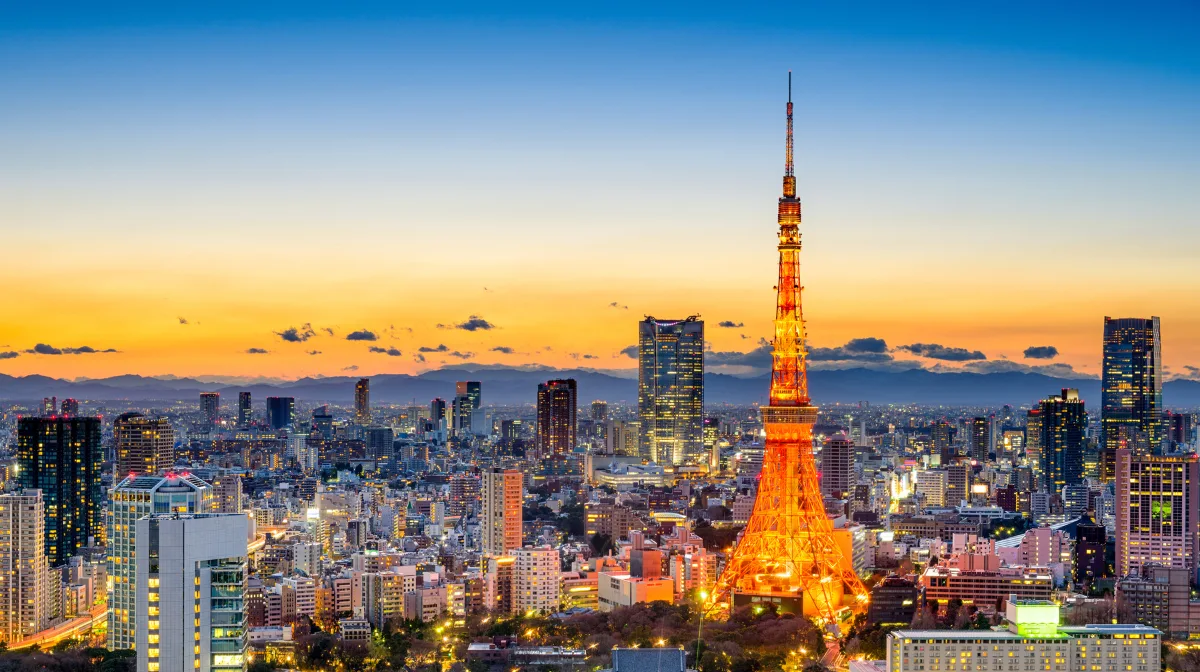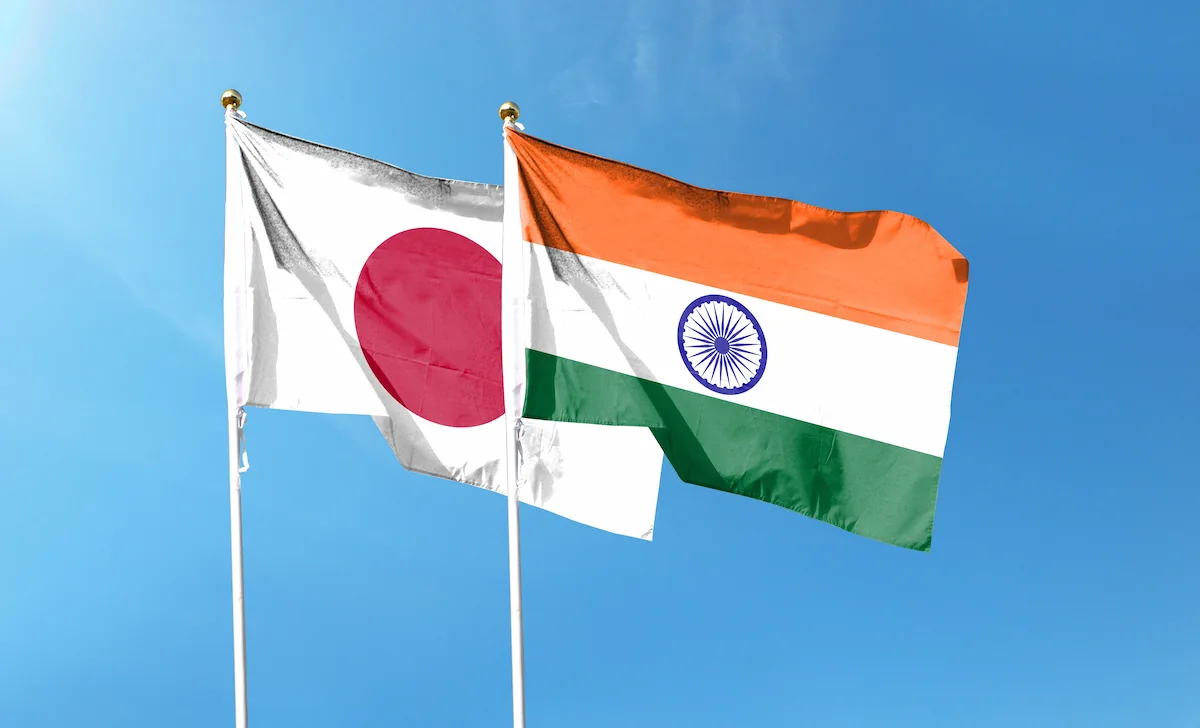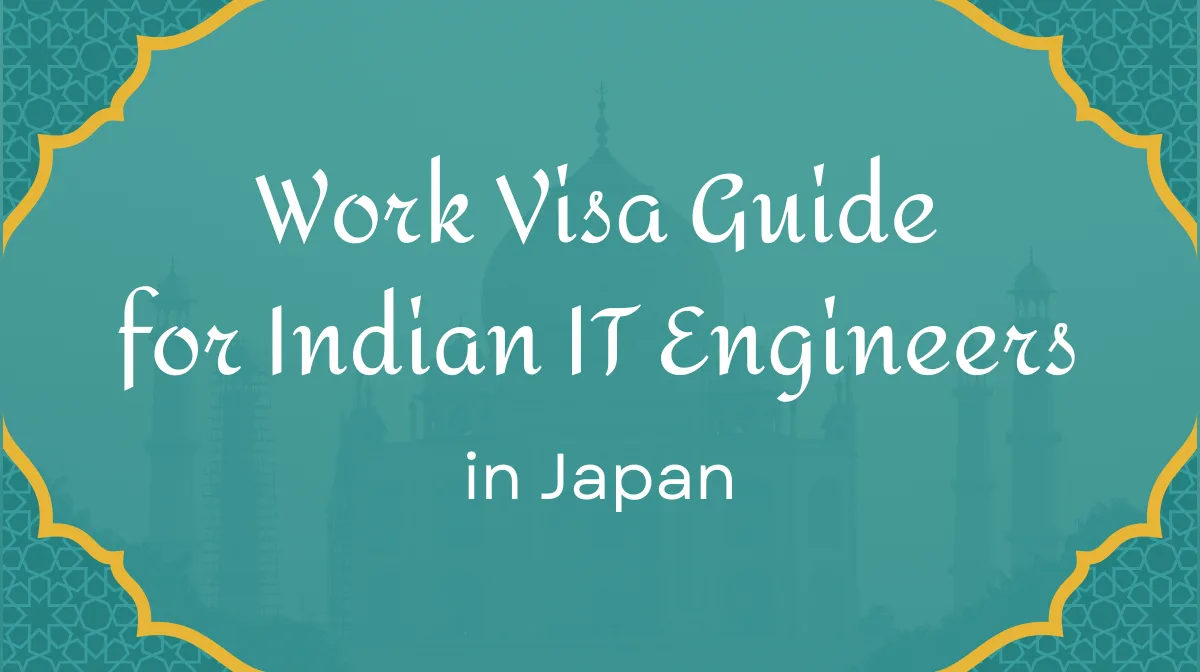The demand for Indian IT engineers to work in Japan is increasing.
According to a 2024 survey, more than 90% of Indian engineering students expressed interest in working in Japan, and Japanese companies are actively recruiting Indian IT talent.
This article explains the specific process from obtaining a work visa to actually starting work for Indian engineers in Japan.
- How Indian IT engineers can obtain work visas for Japan.
- Salary expectations and career opportunities in Japan’s IT sector.
- Essential relocation procedures for working in Japan.
1. Benefits for Indian Engineers Working in Japan’s IT Industry

Japan’s IT industry offers attractive career opportunities for Indian engineers with advanced technical skills.
In recent years, the demand for global talent has rapidly increased as Japanese companies promote digital transformation.
Skills Sought by Japanese IT Companies
Japanese IT companies primarily seek practical experience in system design and development, with particular emphasis on expertise in programming languages such as Java and Python.
Database design and management skills, along with experience implementing cloud services, are also important elements.
Equally important as technical skills is communication ability in team development. Teamwork and project management skills are highly valued in Japanese development environments, along with the ability to adapt to technological trends.
Basic Japanese communication skills enable smoother business operations.
Average Salary and Benefits for Indian Engineers
When working for Japanese companies, laws guarantee treatment equal to or better than Japanese engineers.
New graduate engineers typically start with an annual salary of 3-4 million yen, which can increase to 4-6 million yen with over three years of practical experience, and senior engineers can earn 6-8 million yen or more.
In terms of benefits, comprehensive welfare systems are in place. Social insurance including health insurance and employees’ pension are fully provided, and many companies offer housing allowances and relocation allowances.
In addition to statutory paid annual leave, many companies typically offer qualification support programs to help with skill development.
Reference: Ministry of Health, Labour and Welfare: jobtag
Success Stories of Indian IT Professionals in Japan
In Japan, many Indian engineers are making significant contributions at major IT companies such as Tata Consultancy Services and Wipro.
They play important roles as lead engineers in startups and as bridge SEs for global projects in large enterprises.
According to the latest survey, 91.8% of engineering students in Bangalore, India, showed interest in working in Japan, with notable interest in working in regional cities as well.
In fact, 50.3% responded they “don’t have a preference between urban or rural areas,” while 9.2% specifically wanted to “work in rural areas.”
Career development opportunities are abundant, with many Indian engineers assuming leadership positions in global projects.
They play particularly important roles in business development between Japan and India and are expected to drive technological innovation.
2. Types of Work Visas in Japan and How to Choose

When obtaining a visa to work in Japan, IT engineers have multiple options.
Each visa type has specific characteristics, and it’s important to choose the most suitable one based on your career plans and conditions.
Features of the Engineer/Specialist in Humanities/International Services Visa
The Engineer/Specialist in Humanities/International Services Visa (commonly called “Gijutsu-Jinbun-Kokusai” visa) is the most common work visa for IT engineers.
Approximately 90% of university graduates employed by Japanese companies obtain this visa, which is ideal for positions such as systems engineers and programmers.
The period of stay can be up to 5 years, and this visa covers a wide range of activities including system development and design, database construction and management, network engineering, and IT-related consulting services.
Reference: Immigration Services Agency: Engineer/Specialist in Humanities/International Services Visa
Highly Skilled Professional Visa Requirements and Benefits
The Highly Skilled Professional Visa is a special category that allows work under more favorable conditions.
Obtaining a Highly Skilled Professional Visa… A point-based system is used, evaluating educational background, work history, annual income, etc. You need 70 points or more to qualify. Research achievements and qualifications also contribute to the point total.
Main benefits of the Highly Skilled Professional Visa
- A maximum period of stay of 5 years is permitted
- Multiple business activities are allowed
- Requirements for permanent residency applications are relaxed
- Work restrictions for spouses are eased, etc.
These benefits enable more stable, long-term employment in Japan.
Reference: Immigration Services Agency: Highly Skilled Professional
Visa Validity Period and Renewal
Understanding visa duration and renewal is important for long-term career planning.
Initial period of stay
Usually 1 or 3 years is granted
Upon renewal
Can be extended up to 5 years. However, different criteria apply for Highly Skilled Professional visas.
Regarding Renewal Procedures
Applications can be submitted from 3 months before the expiration date, and renewal documents such as certificates of employment are required.
During renewal review, proof of employment and salary payments are important evaluation factors. Generally, renewal reviews are less strict than new applications, but work performance, adherence to contract terms, tax and social insurance enrollment status, improvement in Japanese language ability, and career development are comprehensively evaluated.
Reference: Immigration Services Agency: Application for Extension of Period of Stay
■日本でエンジニアとしてキャリアアップしたい方へ
海外エンジニア転職支援サービス『 Bloomtech Career 』にご相談ください。「英語OK」「ビザサポートあり」「高年収企業」など、外国人エンジニア向けの求人を多数掲載。専任のキャリアアドバイザーが、あなたのスキル・希望に合った最適な日本企業をご紹介します。
▼簡単・無料!30秒で登録完了!まずはお気軽にご連絡ください!
Bloomtech Careerに無料相談してみる
3. Essential Requirements for Obtaining a Work Visa

To obtain a work visa, you must meet several important requirements. These requirements verify the applicant’s qualifications and abilities, while ensuring stable work activities in Japan.
Below, we explain the key requirements in detail.
Required Educational and Work Experience Conditions
Educational requirements for work visa acquisition
- Graduation from a university in India or overseas, with at least the equivalent of a Japanese bachelor’s degree
- Clear relevance between your specialized field and intended job duties
Academic transcripts and diplomas are mandatory for application, and in some cases, syllabi or curriculum details may be requested.
If educational requirements are not met
Applications based on work experience are also possible.
- At least 10 years of practical experience (in some fields, 3 years or more may be sufficient)
- The practical experience must be directly related to the specialized work you intend to perform
Employment certificates are essential for proving work history, with detailed descriptions of job duties being particularly important.
Reference: Immigration Services Agency: Status of Residence
Salary Standards and Employment Condition Requirements
When working in Japan, the law requires treatment equal to or better than Japanese nationals.
Salary standards are judged solely on base salary, excluding various allowances. This salary level must be consistent with the wages of Japanese employees performing the same duties and with the general wage levels in the region.
Regarding employment conditions, it’s important that necessary items are clearly stated in the employment contract.
Specifically, basic working conditions such as working hours, holidays, and salary payment methods, as well as social insurance enrollment status and overtime payment systems, are subject to verification.
Reference: Immigration Services Agency: Status of Residence
Japanese Language Requirements
The level of Japanese language ability required varies depending on the nature of the work.
For IT technical positions, basic communication level is required, but for those acting as project leaders, more advanced business-level Japanese proficiency is necessary.
Particularly when negotiations with clients are necessary, even higher Japanese language skills are required.
The Japanese Language Proficiency Test (JLPT) certificate is a common way to prove Japanese ability. Previous study or work experience in Japan can also be considered during evaluation.
However, Japanese language requirements may be relaxed in cases where the company’s official language is English or for work specialized in international projects.
Particularly in environments where interpretation and translation support is constantly available, or when working in global teams, more flexible arrangements may be permitted.
Reference: Japanese Language Proficiency Test (JLPT)
4. Visa Application Procedures and Required Documents

The visa application process is an important procedure that progresses through multiple stages.
Starting with obtaining a Certificate of Eligibility (COE), preparing and submitting various documents, and finally receiving the visa, careful attention is required at each step.
Below, we explain the specific procedures and important considerations for each stage.
How to Obtain a Certificate of Eligibility (COE)
Obtaining a COE is the first important step in applying for a work visa. Applications are made to Japanese immigration offices, usually with the hiring company acting as the applicant.
Applications must be filed with the immigration office that has jurisdiction over the location of the host company, and procedures begin after receiving a job offer.
In recent years, the use of online application systems has been recommended for improved efficiency. However, great care is needed when preparing and submitting application documents.
Accuracy and consistency of information are particularly important, as even minor discrepancies can lead to delays or rejection of the application.
Reference: Immigration Services Agency: Application for Certificate of Eligibility
List of Required Documents
The documents required for application can be broadly divided into those prepared by the applicant and those prepared by the company.
Basic documents prepared by the applicant
- Passport copy
- ID photos
- Resume
- Degree certificates, academic transcripts
- Work experience certificates, if applicable
The company is required to submit an employment contract or job offer letter, company registration certificate, latest financial statements, materials explaining business activities, and salary payment certificates.
New companies need to submit a business plan, and job description documents and organizational charts may also be requested.
Required documents must be prepared in Japanese or English, and translations must be attached for documents in other languages. For particularly important documents, certification by a public notary may be required.
Time Required from Application to Acquisition
The standard processing time for obtaining a COE is approximately 1-3 months.
However, if the application period coincides with a busy season, or if there are deficiencies in the submitted documents, it may take longer.
Some companies may be able to use a priority processing system, but this requires meeting certain conditions.
After obtaining the COE, you proceed to visa application procedures at the Japanese Embassy in India. This process typically takes 5 days to 2 weeks. Importantly, the validity period of the COE is set at 3 months from issuance.
The visa application and acquisition must be completed within this period, so prompt processing is recommended.
■日本でエンジニアとしてキャリアアップしたい方へ
海外エンジニア転職支援サービス『 Bloomtech Career 』にご相談ください。「英語OK」「ビザサポートあり」「高年収企業」など、外国人エンジニア向けの求人を多数掲載。専任のキャリアアドバイザーが、あなたのスキル・希望に合った最適な日本企業をご紹介します。
▼簡単・無料!30秒で登録完了!まずはお気軽にご連絡ください!
Bloomtech Careerに無料相談してみる
5. Preparations for Starting Work in Japan

Once you’ve obtained your visa and are about to begin working in Japan, various practical preparations are necessary.
For a smooth start to work and establishing a foundation for living, it’s important to proceed methodically from confirming employment contracts to setting up living arrangements and completing various procedures.
Important Checkpoints in Employment Contracts
The employment contract is an important document that forms the basis of employment.
Essential items to confirm
Employment period (whether there is a fixed term), workplace and job description, working hours, breaks and holidays, salary amount and payment method, and matters related to salary increases and bonuses. These are mandatory items stipulated by the Labor Standards Act and require clear documentation.
Points requiring special attention
Carefully check any conditional clauses related to visa acquisition. Many contracts make the effectiveness of the contract conditional upon obtaining a valid work visa, so it’s important to check for the presence and content of such clauses.
Also, if there is a probationary period, carefully check its conditions, along with overtime pay calculation methods, regulations regarding resignation, and confidentiality clauses.
Housing and Life Setup After Arrival in Japan
When starting life in Japan, securing housing is the highest priority. Many companies have housing support systems, offering company housing, housing allowances, or assistance with finding housing.
Japanese rental contracts often require a guarantor, and it’s common for companies to arrange institutional guarantees.
Once housing is decided, you’ll need to set up utilities such as electricity, gas, and water.
These are usually supported by real estate companies or management companies, but it’s wise to confirm the details of procedures and fee structures in advance.
The first administrative procedure to complete after arrival is resident registration at the municipal office.
Resident registration is required within 14 days of arrival, and based on this, you can also apply for a My Number card.
Opening a bank account is also a high-priority procedure. Many companies have systems in place to support these procedures through their human resources departments.
Reference: Immigration Services Agency: Guidance for New Entrants
Basic Knowledge of Japanese Social Insurance and Taxes
When working in Japan, enrollment in social insurance is a legal obligation. Insurance premiums are generally shared equally between the company and employees.
- Health Insurance
Personal medical expenses are reduced to 30% - Employees’ Pension
Future pension entitlements are secured - Employment Insurance
Provides income security in case of unemployment - Workers’ Accident Compensation Insurance
Provides compensation for work-related injuries and illnesses
Regarding taxes, income tax is withheld from salaries. Resident tax is levied from the following fiscal year based on the previous year’s income.
At the end of the year, there is a year-end tax adjustment procedure to settle any excess or deficiency in taxes for the year. The application of the international tax treaty between India and Japan should be confirmed according to your individual situation.
Various deduction systems are established for social insurance premiums and taxes. Social insurance premium deductions are eligible for the full amount, and if you have a spouse, spouse deductions may also apply.
Additionally, there are deduction systems that can be used depending on your situation, such as housing loan deductions for those with housing loans, and medical expense deductions when medical expenses exceed a certain amount.
Understanding these systems and using them appropriately allows for proper management of tax burdens.
Reference: Ministry of Finance: International Tax Treaties
6. Visa Acquisition is the First Step in Japan, Where Demand for Indian Engineers is Growing
For Indian IT engineers aiming to work in Japan, obtaining a visa is an important first step.
By thoroughly understanding the requirements and procedures explained in this article and preparing systematically, you can achieve a smooth start to your employment.
With increasing demand from Japanese companies, please utilize this information to build a fulfilling career.

















